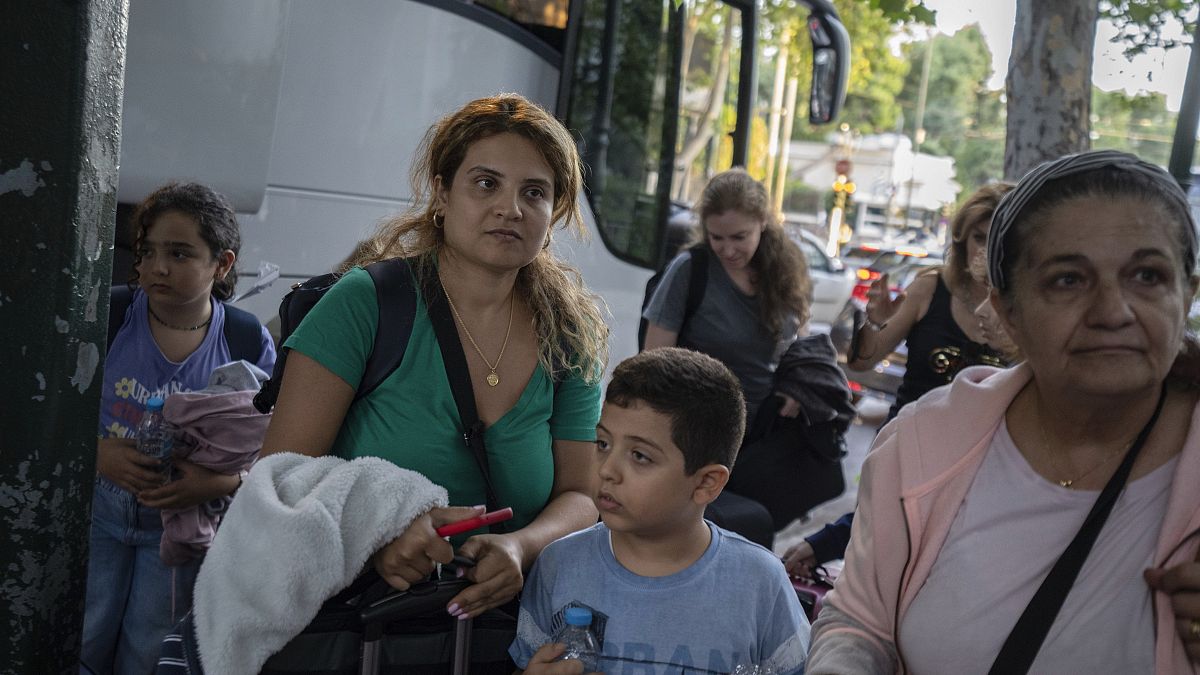The escalating hostilities between Israel and Hezbollah in Lebanon have prompted several European countries to evacuate their citizens from the region. Germany, Greece, Spain, France, and Turkey have all taken steps to bring their nationals home as fears of a wider regional conflict grow. German citizens were flown out of Beirut on a military plane carrying aid and essential supplies. Greece also sent a military transport plane to bring home Greek and Cypriot nationals. Spain evacuated its citizens on two military planes, with additional flights planned. France has negotiated flights to bring its citizens back to Paris, while Turkey brought more than 300 nationals back to Mersin on a ship that left Tripoli.
The evacuees spoke of the fear and uncertainty they experienced in Lebanon due to the ongoing conflict. Many mentioned the sound of bombs and planes overhead, as well as the difficulties faced by civilians in the country. The situation was described as challenging and terrifying, especially for families with children. The evacuees expressed relief at being safely reunited with their families and grateful for the opportunity to leave the conflict zone. The French embassy in Lebanon has made arrangements for additional flights to Paris for those wishing to return home, while Air France has suspended all passenger flights to Lebanon until early October.
The Turkish government has set up an emergency hotline for citizens in Lebanon to apply for evacuation as the security situation in the region is expected to deteriorate further. More than 300 Turkish and foreign nationals have arrived in Mersin after traveling on a ship from Tripoli. The evacuees described the situation in Lebanon as a bloodbath, with bombs exploding nearby and causing chaos. The Turkish Foreign Ministry has deployed officials to oversee the evacuation process and ensure the safe return of citizens to their home countries. The evacuations come amid warnings from the Israeli military for people to evacuate certain cities and communities in southern Lebanon near the UN-declared buffer zone.
As the conflict between Israel and Hezbollah intensifies, there is growing concern about the possibility of a wider regional war in the Middle East. The Israeli military has issued fresh evacuation orders for communities in southern Lebanon, indicating a potential expansion of the ground operation against Hezbollah. European countries have responded by evacuating their citizens from Lebanon, prioritizing the safety and security of their nationals. The evacuations have been carried out via military planes and ships to ensure a swift and orderly return for those caught in the crossfire of the conflict.
The evacuees from Lebanon have shared harrowing experiences of living in a war zone, where the sound of bombings and the threat of violence were constant. Many expressed relief and gratitude upon arriving safely in their home countries, having left behind the hardships and dangers of the conflict. Governments have set up hotlines, negotiated flights, and provided aid to facilitate the evacuation process and ensure the well-being of their citizens. The situation in Lebanon remains volatile, with ongoing clashes and escalating tensions between Israel and Hezbollah. The international community continues to monitor the situation closely and respond to the evolving crisis with humanitarian assistance and diplomatic support.











